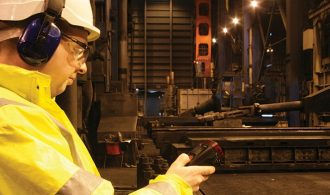The Basics
Industrial hygiene consultants are responsible for ensuring that workplaces in manufacturing plants are hazard-free. This might include things like ensuring that the noise decibel level is not overshot by measuring noise levels, checking water and air quality, as well as analyzing effluent coming from machines in the industry.
Industrial hygiene consultants are not permanent employees of a given company; they visit different industries from time to time and report their findings to the Department of Health and Sanitation. They are supposed to make sure that workers found in the environments that they inspect are kept healthy at all times.
After a typical inspection, an industrial hygiene consultant will compile a list of some of the things they’d like to see addressed, and then present these concerns to an operations manager. It’s the responsibility of the operations manager to make changes to the work environment within a given time frame. This continuous process seeks to improve the working environments of employees gradually. With a better environment in place, workers become more productive in the long run, boosting a company’s bottom line.
There are different types of industrial hygiene consultants, some of whom include:
- Work-site analyst
- Environmental analyst
- Quality assessment analyst.
Industrial Hygiene Sampling
Industrial hygiene sampling is part of the consultant’s job: they do this by collecting water and effluent samples which are taken to a lab for analysis. The results are compared with an acceptable standard, after which changes are made to a work environment if possible.
Industrial hygiene consultants are at the very core scientists given the investigative and eveidence-based nature of their work. Things like testing for radiation leakage are part of a consultant’s job, so most of these individuals have a science-based degree such as a chemistry or biology degree.
Egronomic Work Place
It’s important to have an ergonomic workplace given the direct correlation between worker comfort and overall productivity. Government regulations, as well as recommendations by insurance companies are all factors that an environmental hygiene consultant pays attention to.
Interviewing workers to get their opinion on work condition is part of industrial hygiene risk assessment. The consultant examines issues such as the kind of treatment workers receive from management, to the relationship that exists between co-workers. An environment where workers don’t feel physically and psychologically secure might have long-reaching impacts on company profitability and worker morale.
Consultants
Most industrial health consultants spend a lot of time in labs carrying out research into materials collected, and only make field visits when absolutely necessary. Doctors and nurses might also find themselves transitioning into this career given their training in the sciences. Toxicology, statistics and engineering are some of the aspects that are closely tied to industrial hygiene services, so these individuals are always undergoing extensive training to keep up with accepted industry standards as the years go by.
Workplace safety in some domains can’t be compromised. Nuclear reactor sites, airports and chemical production plants are considered high-risk, which is why specialized industrial hygiene consultants are needed in these areas. The Chernobyl disaster might have been averted if there was a more thorough assessment of the risks involved in operating the plant. At the end of the day, industrial hygiene consultants play an indispensable role in keeping both workers and the general public safe.

